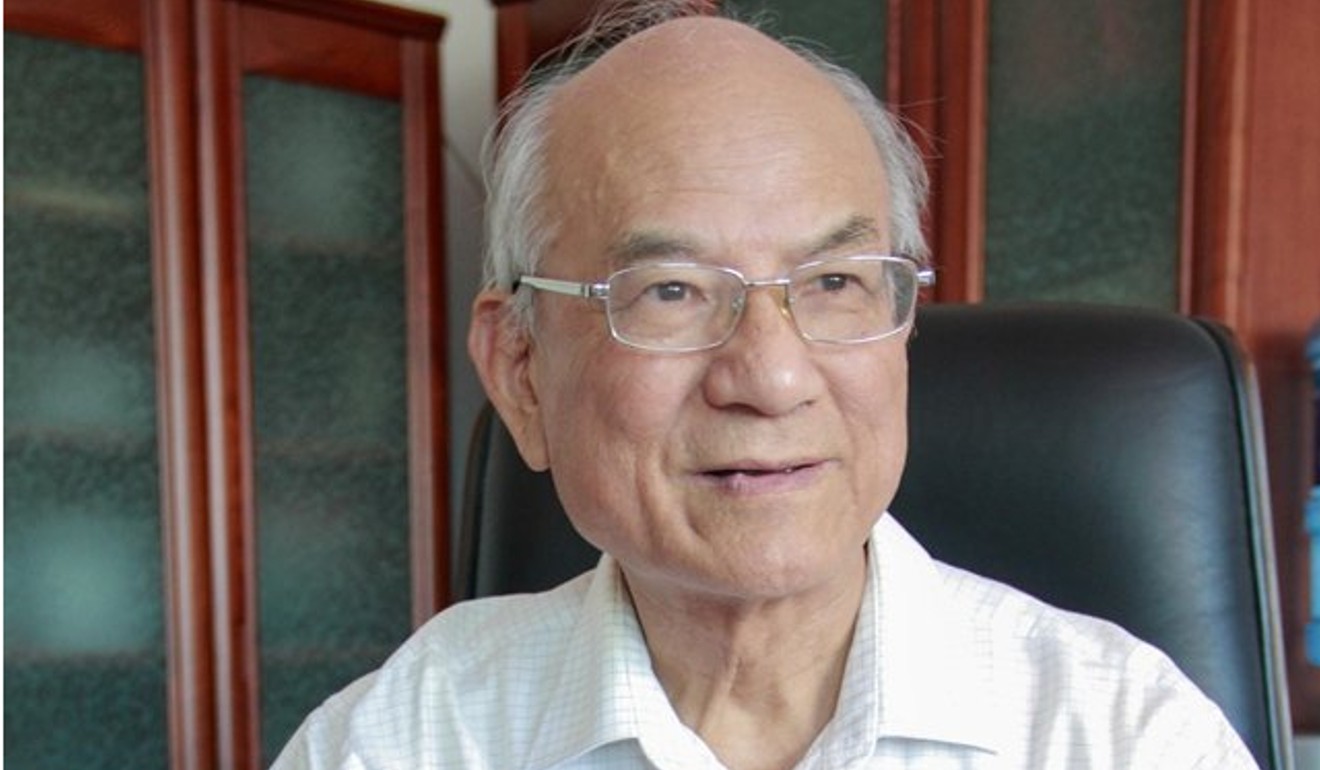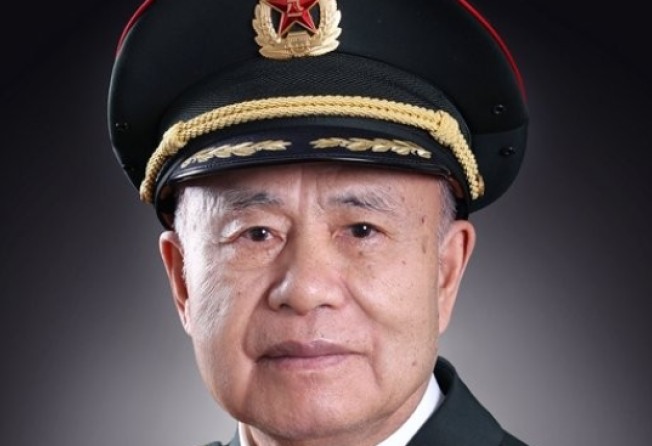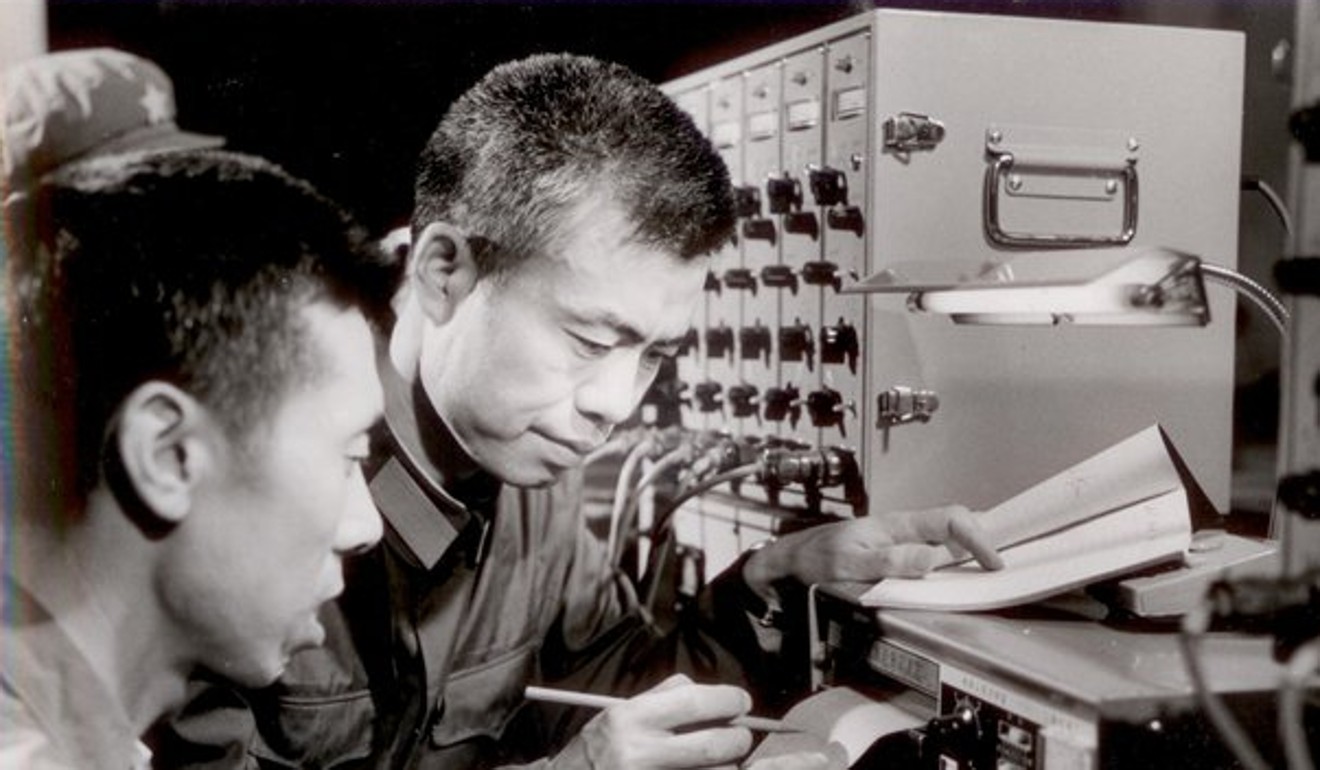
China honours defence engineer Qian Qihu and radar expert Liu Yongtan in annual science and tech awards
- Octogenarian military scientists receive top prize for their work on ‘underground Great Wall’ and maritime radar system
- Top leaders including Xi Jinping were at the ceremony in Beijing

China gave awards to its top scientists on Tuesday, including a defence engineering expert who helped build an “underground Great Wall” and a scientist who worked on the country’s maritime radar system.
Highlighting the importance of the annual science and technology awards, the ceremony in Beijing was attended by President Xi Jinping and all members of the Politburo Standing Committee – the ruling Communist Party’s most powerful body.
It also came at a sensitive time, with China and the United States locked in an intense technology race.
Premier Li Keqiang told the more than 3,000 scientists and researchers in the audience that China would “step up building the system for [intellectual property rights] creation, protection, application and services, and crack down on IPR infringement”, according to the official Xinhua news agency.
Two octogenarian military scientists, Qian Qihu and Liu Yongtan, received the top honour – the supreme science prize – from Xi at the Great Hall of the People.

While Xi did not speak at the ceremony, party mouthpiece People’s Daily published a “guide” to his “key policy instructions on science and technology and national rejuvenation” for the past five years.
They included his warning at a party meeting in 2015 that “there will be more intense technology competition” to come. “If we can’t go up the technology ladder, our [national] productivity will suffer and lag behind, and we will lose in the global economic competition,” Xi was quoted as saying.
He also said China would only make progress on innovation by further opening to the outside world.
Top prizewinners Qian, 82, and Liu, 83, received 8 million yuan (US$1.2 million) each for the awards. Qian was recognised for his work on the country’s underground nuclear shelter facilities, while Liu won the prize for his contribution to China’s first high-frequency radar system.
Another 278 projects and inventions were recognised at the ceremony. The first-class prize in fundamental science went to the research team who first observed the quantum anomalous Hall effect in the laboratory – a phenomenon that could revolutionise energy efficiency and computational speed. The team was led by physicists Xue Qikun and Wang Yayu at Tsinghua University in Beijing.
Radar expert Liu began his career in the late 1970s, going to Britain on a Chinese government scholarship to study at the University of Birmingham and University of Essex.
Now lead scientist on China’s over-the-horizon radar programme, Liu told state broadcaster CCTV that “the honour belongs to my team”.
Another radar scientist, Deng Weibo from the Harbin Institute of Technology, said Liu was still active in the research community, even in his 80s.
“Master Liu still insists on reading the literature and cares about the development of our projects … [he] will personally go there and sometimes share his ideas,” Deng told official newspaper Science and Technology Daily.
“He is also keen on cultivating young people and letting young people take up the baton,” he added.

Qian, the other supreme science prizewinner, began his career at the Military Institute of Engineering – a college affiliated with the People’s Liberation Army in northeastern Harbin – in the 1950s.
He enlisted in the PLA while he was a student at the institute and was later sent to the former Soviet Union to study military engineering.
In 1988, Qian was promoted to the rank of general for his contribution to rock mechanics theory and its applications for underground shelter infrastructure.
“The defence facilities against nuclear explosions are a steel ‘underground Great Wall’ for our country,” Qian said in an interview with state news agency China News Service. “If nuclear weapons such as atomic bombs are upgraded, so should our defence system [be upgraded].
“My goal has been to design a nuclear weapons-proof wall for my country,” he said.
Qian’s expertise in rock mechanics and underground engineering has also contributed to civil projects in China. He led work on the construction of a tunnel crossing the Yangtze River in the eastern city of Nanjing in 2008.
He was also an adviser on the 55km (34-mile) Hong Kong-Zhuhai-Macau Bridge – the world’s longest sea crossing, which opened in October – during its design and construction.
The national science and technology awards were established in 1955, just six years after the founding of the people’s republic. The prize money has grown considerably over the years, from 10,000 yuan to the millions of yuan available today. The prestigious awards aim to honour scientists whose work has contributed to the country’s economic growth and defences.
Past winners of the supreme prize include Cheng Kaijia, a pioneer in nuclear physics, Zhao Zhongxian, a forerunner in high-temperature superconductivity, and Tu Youyou, a chemist and Nobel laureate who discovered and distilled the malaria treatment artemisinin.